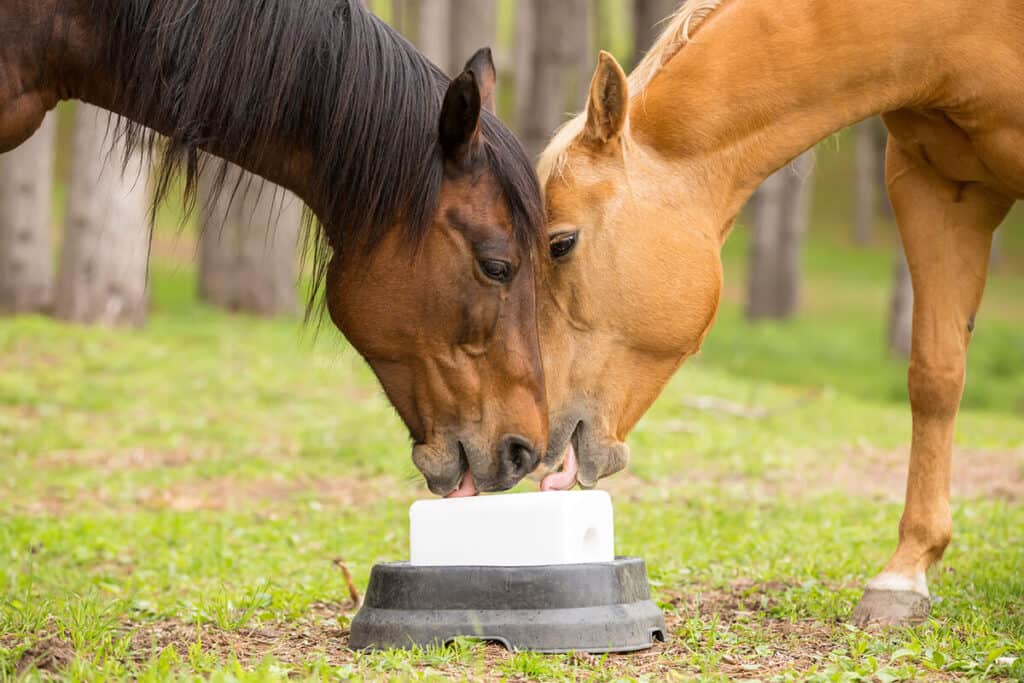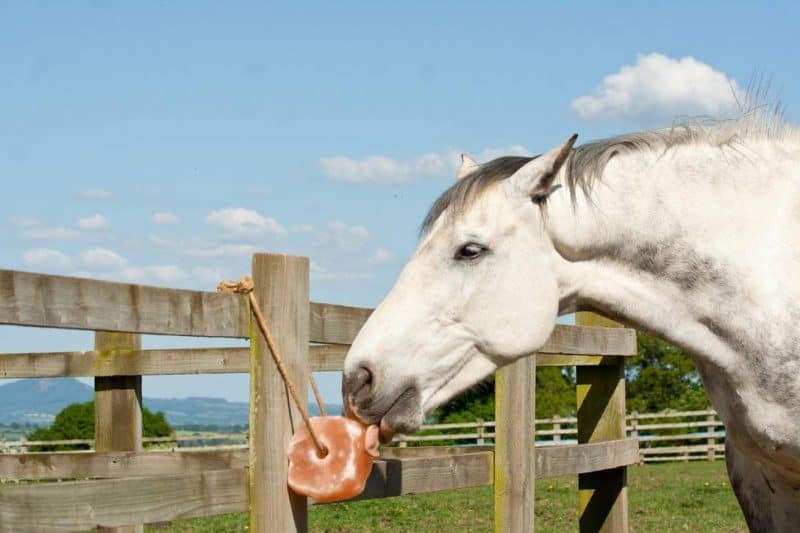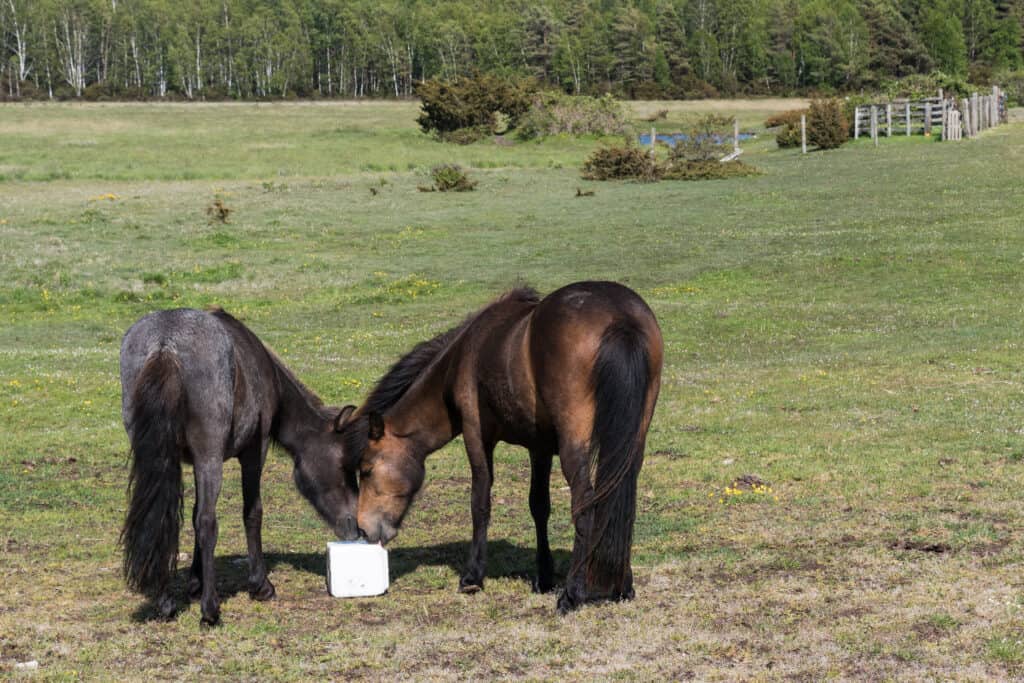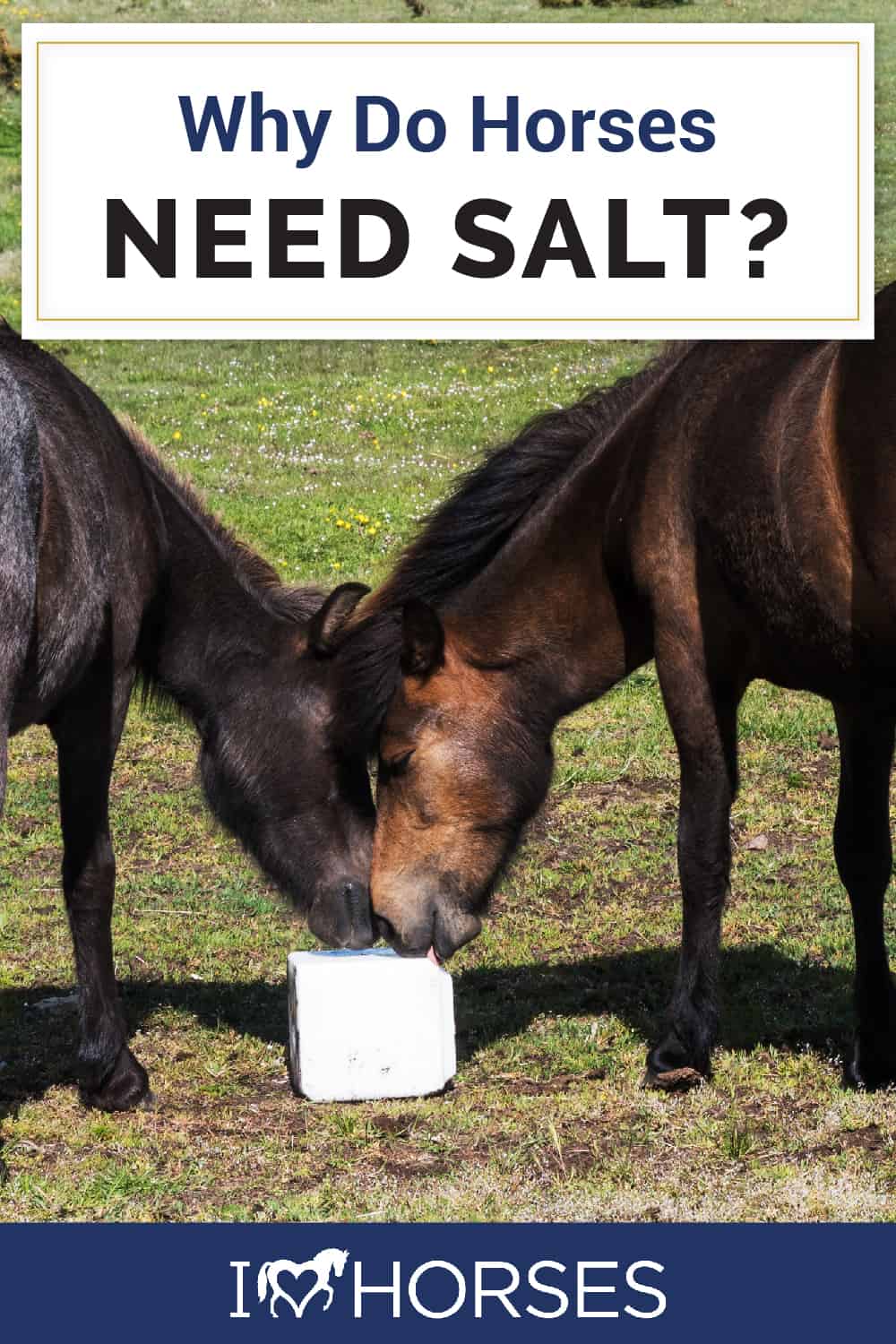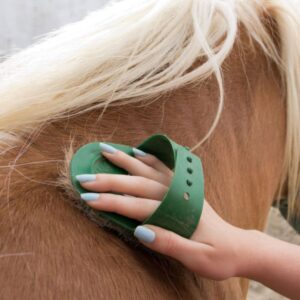Whether you are providing a salt block or feeding it in granulated form, salt is an essential mineral needed by horses. Sodium and chloride are the two components of table salt. For this article, we will be referring to the sodium component. Read on to find out why horses need salt and what is the best way to feed it.
Why Feed Salt?
Salt is needed to avoid a mineral imbalance, dehydration, impaction colic, and other health issues. Horses do not produce this mineral internally, so they need to get salt and other trace minerals in their feed. Forage provides some sodium but not enough to fulfill the daily needs of a horse.
When humans sweat, we lose mostly water. When horses sweat, they lose water and electrolytes, which includes sodium. During periods of hot, humid weather or intense workout regiments, we must ensure our equine partners are getting enough sodium in their diets.
Sodium: The Magical Mineral That Holds Everything Together!
Found in the fluid surrounding cells, and in blood, sodium has an important job holding everything together. If sodium levels get too low, the blood won’t hold enough water. This triggers the adrenal gland to release a hormone that tells the kidneys not to release any sodium. When this occurs, the horse can still urinate, but he is passing potassium instead of sodium. The results are a mineral imbalance. If you would like to read more about salt’s role in a horse’s body, here is an interesting article by Hygain: Feeding Champions Since 1983.
What Vets Have to Say
Exclusively Equine Veterinary Services has this to say about the importance of sodium. Sodium is one of the most important minerals your horse requires for countless bodily functions that support optimum health. These include:
- Hydration
- Healthy weight and body condition
- Blood volume, sugar, and pH
- Transmission of glucose
- Nerve and musculoskeletal function
- Hormone and mineral balance
- Healthy coat and hooves
Signs of Sodium Deficiency
Sodium deficiency can intensify both anhidrosis (non-sweating) conditions and tying up (severe muscle cramping). Other signs are rapid heart-beat, incoordination, and unsteady gait. Sometimes it can lead to difficulty chewing.
How to Supplement Salt
A horse that isn’t being worked requires at a minimum of 10 grams of sodium per day. This is equivalent to two-level tablespoons. During times in which they sweat more, they need more.
Salt can be supplemented by either providing a salt block or adding granulated salt to grain. There is a big debate as to which is the best. We will get into that in a moment. If you feed grain, you will need to check the salt content. Most commercial feeds do not provide adequate sodium levels. But they do provide some, so you will need to adjust for that content.
Block vs. Granulated Form
Check the internet, and you will find understandable arguments for feeding both forms of sodium.
The arguments for salt blocks center around the fact that a horse will regulate his salt intake as he needs it. Plus, there is a significant convenience factor: put it out and forget it until it’s gone. Your horse will need a salt block designed specifically for a horse’s softer tongues, not one for other types of animals. Salt blocks for other animals can also contain components that are harmful to horses. The block will also need to be located somewhere precipitation cannot get to it. It is hard to observe how much your horse uses the block if the rain is washing it away.
The main argument for granulated salt is that you can observe how much your horse is taking in and adjust if necessary. Being in control of your horse’s sodium intake can be very beneficial for horses in training regiments or with certain illnesses. Another argument for granulated instead of a block is that a horse’s tongue can get sore licking a block. Sore tongues can affect performance.
Salt Block vs. Mineral Block
If you feed a concentrated feed, your horse is more than likely getting the other trace minerals needed. In this case, you will want to provide a plain salt block. For some horses, the minerals’ bitter taste will keep them from consuming enough of the block to get their sodium needs.
What Kind of Granulated Salt?
Table salt comes in two forms. One is iodized, with iodine added. If your horse is getting a commercial feed, chances are he is getting the iodine he needs already. Therefore, stick with non-iodized table salt. The coarser texture of kosher salt is also a good choice. Start with two tablespoons a day and work up to four tablespoons split between two meals. How much salt you provide will depend on the horse’s activity level and the heat and humidity.
Water
Free choice of water is always essential for horses. Just like salt makes us thirsty, it will make a horse thirsty. This is why supplementing with salt is good for horses that are not the best of drinkers.
Horse Courses by Elaine Heney
- Listening to the Horse - The Documentary by Elaine Heney & Grey Pony Films
- Shoulder In & Out Training for better balance, bend & topline development with your horse
- Over 110+ Polework Exercises & Challenges to Download
- Dancing at Liberty & Creating Connection with Your Horse (11 lessons) - Grey Pony Films
Final Thoughts
Salt is a vital mineral needed for multiple functions in the body. Horses do not produce sodium and need to obtain it through what they eat. Forage and commercial feed often do not supply enough sodium for a horse’s daily needs. Therefore, it is up to us to provide them with sodium, whether in a block or granulated form. Although doctors may tell us to lower our salt intake, veterinarians tell us horses need salt for multiple reasons.

